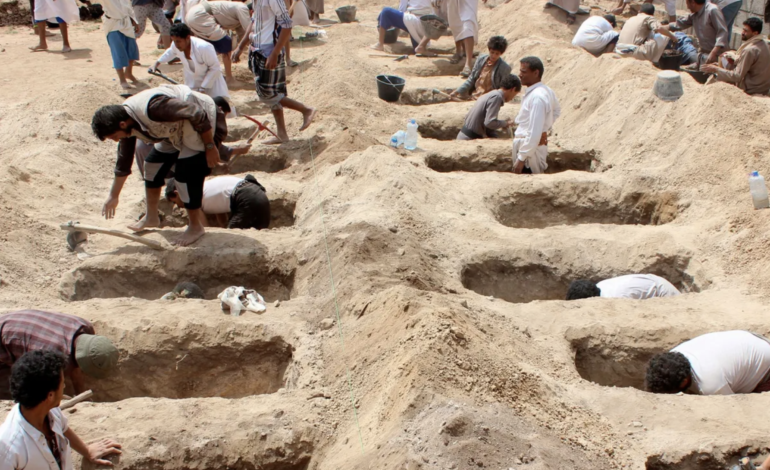GENEVA – Activist groups called on the U.N. General Assembly on Thursday to create a new panel of independent experts to collect and preserve evidence of possible war crimes by all sides in Yemen’s bitter conflict for future prosecution.
Bahrain, Russia and other members of the U.N. Human Rights Council pushed through a vote in October to shut down its war crimes investigations in Yemen, in a stinging defeat for Western states.
Some 60 groups, including Human Rights Watch and Amnesty International, called in a joint statement for a fresh investigation and accused Saudia Arabia and the United Arab Emirates of an “aggressive lobbying campaign” to quash that Geneva-based expert panel set up four years ago.
More than 100,000 people have been killed and 4 million been displaced in the war marked by Saudi-led coalition air strikes as well as shelling and missiles by Houthi fighters.
The Saudi-led coalition intervened in Yemen in March 2015 after the Houthis ousted the internationally recognized government from power in the capital, Sanaa, in 2014.
“For too long, parties to the conflict in Yemen, including Saudi Arabia and Houthi forces, have committed atrocities with impunity,” Agnes Callamard, secretary-general of Amnesty International, told a press conference.
The United Nations had failed the Yemeni people who have endured years of widely-documented suffering, she said.
“Bullying and bribing and corruption of the system has won the day,” Callamard said. “Saudi Arabia and the UAE and their allies shamelessly and aggressively lobbied states through their capital cities and got rid of the Group of Eminent Experts.”
The Saudi government communications center did not immediately reply to requests for comment.
“There is a deadly vacuum of accountability in Yemen. That’s because the Saudi government killed the one existing mechanism,” said Ken Roth, executive director of Human Rights Watch.
“So we would like to see General Assembly action certainly within the next month or two, this is something that needs to proceed expeditiously.”
Saudi officials had “bribed, coerced and arm-twisted” member states of the Human Rights Council, defeating the resolution, Roth said.
The groups did not offer proof of the bribery and bullying allegations.
But Roth, echoing comments by Western diplomats in Geneva, said Saudi officials had warned Indonesia and possibly other Muslim majority countries that they should vote against the probe if they wanted their nationals to have access to the Haj pilgrimage in Mecca.






Leave a Reply